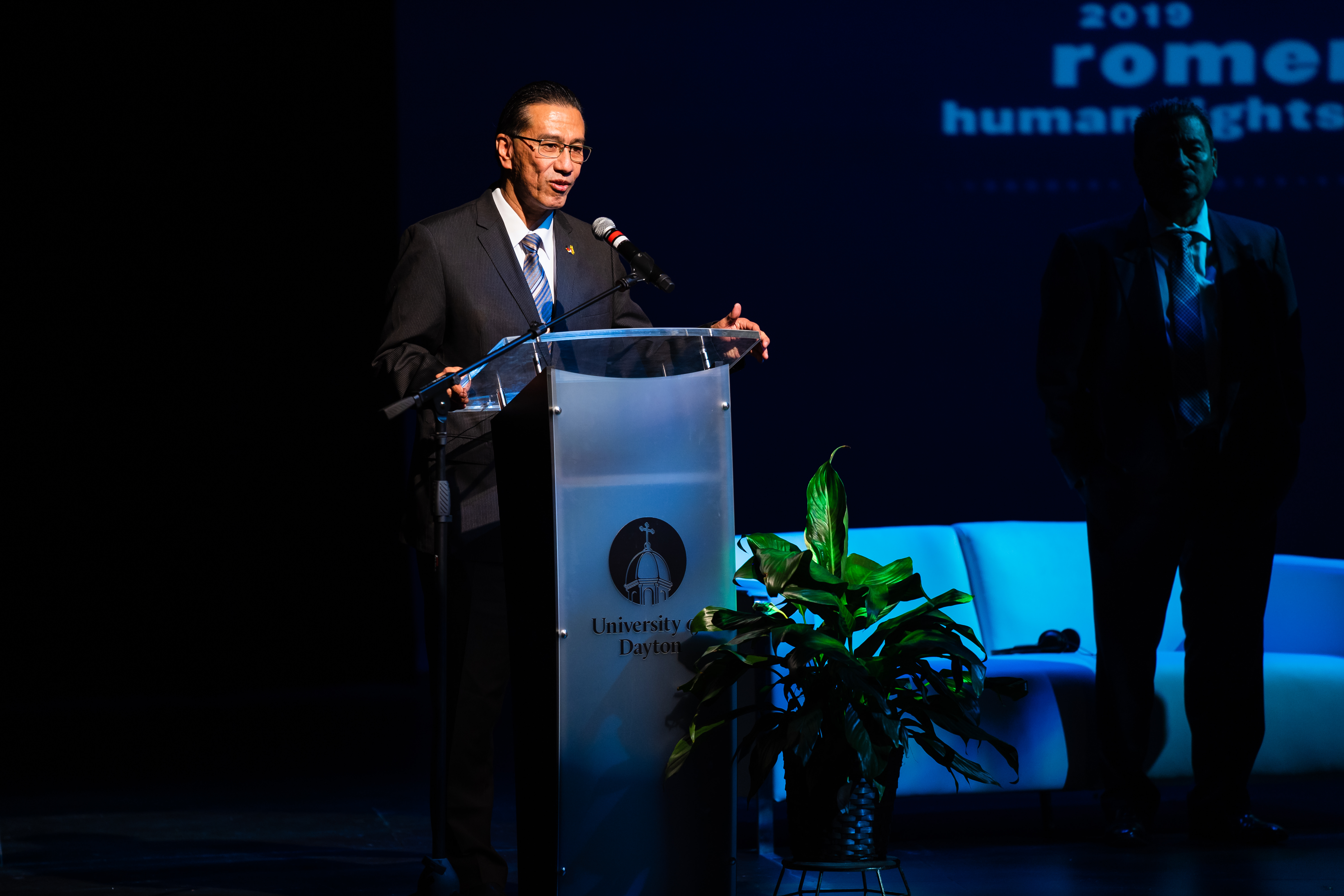Let's Talk Human Rights

A new honor for Romero Award Winner David Morales
By Ashley Walker and David Quick
We congratulate the University of Dayton Romero Human Rights Award winner, David Morales for his receipt of the Washington Office on Latin America (WOLA) Human Rights Award this year in Washington, D.C. Morales received the Romero honor from the University of Dayton for his ceaseless dedication to human rights and transitional justice in El Salvador. In 2019, Morales received the Award along with Ovidio Mauricio Gonzalez and Wilfredo Medrano for their work to investigate and bring to justice those responsible for the El Mozete massacre and the links between a failure of accountability for past violence to current violence and migration in El Salvador.
The WOLA Human Rights Award is given to honor individuals who have worked to promote human rights, democracy, and justice in Latin America. Morales's commitment to human rights and social justice make him the perfect candidate for this award. Morales is a lawyer and human rights advocate who has been working relentlessly to point out the violations that are occurring in El Salvador under the current Salvadoran President Nayib Bukele’s administration.
Morales’ work began in the early 1990s at the Legal Protection Office of the Archbishop of San Salvador. At the time, this was one of the few institutions that were fighting to protect human rights in El Salvador. Morales went on to become a plaintiff in the El Mozote case, where government officials would be tried for the infamous three-day massacre of nearly one thousand civilians in 1981. This case was denied by the Salvadoran justice system for decades until Morales and the families of the victims finally got the case moved forward by a lower court. Despite these efforts, Bukele rejected the request from the judge to access army documents on the massacre in El Mozote and has since removed the judge from the case. Morales has been steadfast in his criticism of the government’s apparent apathy.
Morales continued his work as the Human Rights Ombudsman (PDDH) with the National Assembly. Some of his notable achievements as the PDDH include leading an investigation into the structural issues within the Salvadoran police and denouncing flawed state policies. Of note is his denunciation of the state’s mano duro policies which permit repression and abuse of El Salvador’s poor and urban neighborhoods.
In March 2022, Bukele declared a national state of emergency due to a rise in gang-related homicides. Since then, he has instituted martial law. Martial law means that the government has the power to arrest anyone suspected of being affiliated with a gang without a warrant for arrest. There have been over 55,000 people detained in El Salvador under martial law. Reports indicate inhuman conditions, torture, and arbitrary killings. Despite the repression of voices critical to Bukele’s politics, Morales persists.
We want to underscore how crucial Morales’ work is for demanding that international law and human rights norms be respected. Without the defense of human rights, abuse leads to impunity. In a moment as pressing as this one, the courage of Morales and his colleagues serves as a beacon for human rights defenders and a dire sign of alert to the international community. Through such courage, Morales continues to honor the tradition of being the “voice of the voiceless” attributed to Saint Oscar Romero.
We will bestow the 2023 Romero Award in March, 2023.
David Michael Quick is a senior with majors in human rights studies and philosophy. He is studying the ways dehumanization and visibility affect the utility of human rights discourse.
Ashley Walker is a senior pursuing a degree in communication with a concentration in management and a minor in public relations. She has been working with the HRC as a marketing and communications intern and is passionate about environmental justice, women’s rights, and advocacy for racial equity.
